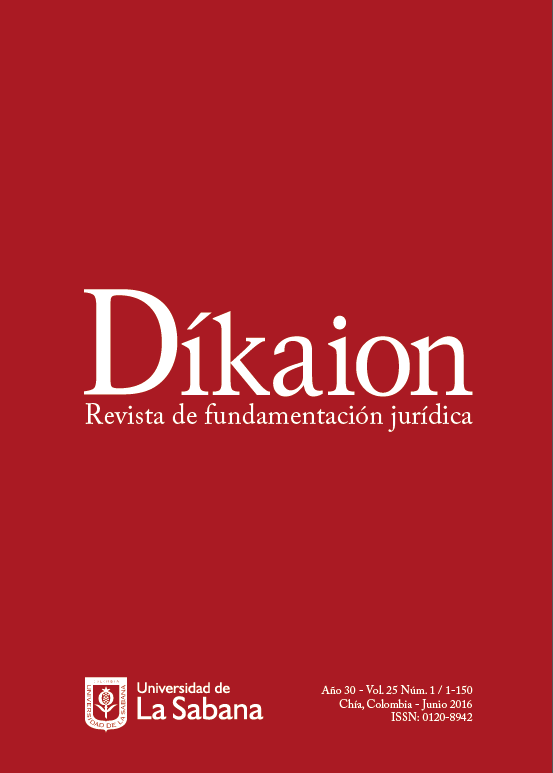Between Implied Rights and Natural Rights: The Inter-American Court of Human Rights and Non-Discrimination Based on Sexual Orientation in the Atala Case
Keywords:
Discrimination, Sexual Orientation, Atala Riffo Case, Implied Rights, subsequent natural rights, Natural Law.Abstract
In this paper we make a brief comparison of the arguments of the Inter-American Court of Human Rights to establish an alleged implied right to non-discrimination based on sexual orientation in the Atala case and the arguments that natural law may use to postulate “subsequent” natural rights as human rights not positively presented in an authoritative manner based on human nature. In this sense, we will not review or systematically refute the presuppositions, arguments or general conclusions of the judgment used as an example. The parallel offered will allow us to demonstrate some of the theoretical advantages of an approach from natural law that recognizes in human nature the primordial normative criterion of the establishment of human rights without disregarding the strength of the positive dimension of law.
Downloads
Published
How to Cite
Issue
Section
License
1. Proposed Policy for Journals That Offer Open Access
Authors who publish with this journal agree to the following terms:
This journal and its papers are published with the Creative Commons License Attribution-NonCommercial-NoDerivatives 4.0 International (CC BY-NC-ND 4.0). You are free to share copy and redistribute the material in any medium or format if you: give appropriate credit, provide a link to the license, and indicate if changes were made; don’t use our material for commercial purposes; don’t remix, transform, or build upon the material.






